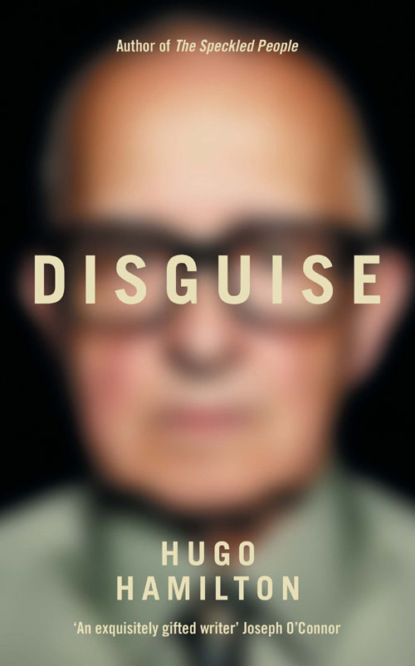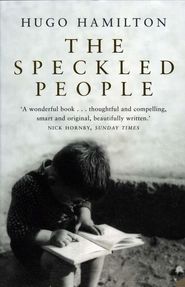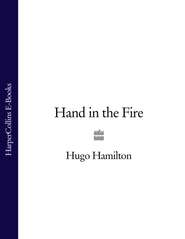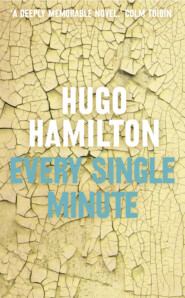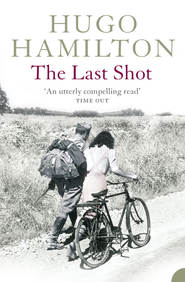По всем вопросам обращайтесь на: info@litportal.ru
(©) 2003-2024.
✖
Disguise
Настройки чтения
Размер шрифта
Высота строк
Поля
Gregor Liedmann was asleep in his bed and never even woke up. He was almost three years old and went straight from his dream into death, surrounded by his pencils and his writing pad and the wooden ship that his grandfather Emil had made for him. His mother said he was very good with words. He was an early speaker and was already counting and writing the alphabet. Large letters sloping down the page at an angle. That’s how he went to sleep every night, with the writing pad under his pillow and the sharp pencils around him which his mother then had to remove very carefully like a patient game of Mikado sticks to make sure he didn’t wake up again. He was dreaming about spitting. He used to watch the two older boys across the landing holding on to the banisters and spitting down into the stairwell. He observed the spit falling silently, swaying on its way down and eventually hitting the polished floor below with a click. He got into trouble one day when the old woman with all the hats suddenly looked up and saw him. The older boys had disappeared by the time she came up the stairs to make a complaint, so he had to listen to her saying what a disgusting child he was, spitting down on people’s heads. And though his mother told the woman that it was not the worst thing she could be hit by in these times, she was cross with Gregor afterwards and said she would take the pencils off him if he ever spat down the stairwell again.
Now it was one of the big blockbusters coming for him. Four thousand pounds of black steel packed with high explosives like a hard chocolate cake. His mother came running through the hallway, but she was thrown back by the blast and landed on the far side of the house with the ceiling on top of her. They found her in a bed of plaster, under a blanket of entwined batons and criss-crossed joists. When she woke up, they had to hold her back because she wanted to continue running into Gregor’s bedroom which no longer existed. The back of the house was missing entirely. The boy gone. No sign of him left, or his room. Nothing but a shell of unfamiliar walls, rooms cut in half, missing doors and flaming architraves. If it wasn’t for the brightness of the fires all around and the smoke and the neighbours holding her back, she would have walked straight out over the cliff, down into that emptiness left behind by her son.
They were still putting out the fires the next day, clearing the debris from the streets to make way for transport. The trees were raining cinders. People were lost and disoriented, walking in a daze. Everyone coughing, searching in the rubble, rescue workers picking up beams of blackened wood to see who might be underneath. The day was dark. And cold. There was a terrible silence and clouds of smoke hung over the city, keeping back the sun. Some of them got the idea of wearing bathing goggles against the dust. People were being carried away on pieces of wood, in barrows, on children’s prams. Bodies covered in grey dust, naked, unrecognisable, red and black and pink, shrunken with no features left. Some of them fused together in the very position in which they had died so they had to be carried out in a charred embrace. In some places they found nothing more than a trace of life left behind, a liquid, a piece of grease, wax remains around a cup or a bent spoon. A melted button. Many of the basements were connected in a warren so they could escape from one house to the next all the way down the street. In one corridor underground, they found dead people huddled on both sides of a steel door, all hoping it would lead to air. The injured could be heard crying and moaning. A young girl standing on the street in a state of delusion with her head wrapped in a scarf, asking for an apple. Does anyone have an apple for me? she kept trying to say, even though most of her jaw was missing and she could hardly enunciate the words. And everywhere the names being called. Names echoing along the blackened hulls of apartment blocks, deep in the backyards where walls were still collapsing without notice in a profound rumble, making people run away in every direction all over again.
Gregor. Gregor, my pet.
She wandered through the streets, searching and calling for him as if he was playing outside with the other children. She returned to the ruin of her apartment block throughout the day and was comforted by neighbours. They had their own losses to deal with, but they took her in and shared their food with her. At night she would wake them all up calling for her son, believing that she had heard his voice. They knew the doctors had told her she could not have any more children. So she clung to the hope of finding her boy alive, searching for him every day, finding nothing after seven days but a shard of a pencil. She stopped to pick it up. The lead was missing, but she could clearly see the rounded imprint of a tiny black tube running through the wood. She held it in her hand for a while, knowing that it must have belonged to Gregor, then walked to the park where they were burying the dead. There she dug a small hole in the earth with a stick in order to bury this piece of a pencil, kneeling down for some time and praying for him.
She could no longer sense cold or hunger, only the loss of her child.
‘What will I tell my husband?’ she kept asking, which some took as a sign of extraordinary love and optimism. The more cynical and grief-hardened spoke with brutal clarity and told her she would be lucky if her husband ever came back. She cried openly when they said that. Spoke his name softly as if he was in the next room and would come out any minute to stand by her side. She spent her days wandering about, isolated in her grief, with nothing more to lose, and maybe that is what separated her from the others who were still focused with such vehemence on survival. While she increasingly lost interest in living, unable even to nourish herself, they continued their instinctive hunt for opportunities, searching for little deals and bargains that would help to keep them alive. They spoke with inspired doom and joked about their own fate, a sign that they understood the value of life all the more. They developed extraordinary faculties for suppressing their grief and concentrated on sniffing out food and warmth, chocolate, coffee, cigarettes, clinging on to the little luxuries that gave dignity and status to their lives. She had lost all these survival skills. She lost her sense of direction and could not recognise the streets any more. All the familiarity had been taken away. In some places the street names still stood on the corner, giving the numbers of the houses, though the street itself had disappeared and the whole district began to look like open country.
They could not understand a woman who no longer cared for herself. They feared the contagion in her grief. There was worse to come when the city fell into enemy hands and they made it clear they could not look after her indefinitely. She had gone from being a mother back to being a child, so they urged her to get out of the city. It’s what she should have done long ago, they said, before the bombing started. She was more of a country girl, from outside Nuremberg. So they helped her write letters home to her father and mother. A neighbour managed to get her a train ticket south, halfway home as far as Jena.
So she fled the unforgettable smell of damp charred wood that still stuck in the back of everyone’s throat, walked through more and more collapsed streets, took shelter from another wave of bombing in an underground station along the way, until she got to the southern cross where she waited for days to be allowed on a train. Everything was in chaos. A journey that took only three to four hours before the war now took her almost five days. People were fleeing everywhere, soldiers making their way to the front in the opposite direction. Luggage left behind. Children separated from their parents. Lawless boys roaming around, fighting and stealing food, anything they could get from vulnerable people on the move. Even more distressing, an adult taking a piece of bread off a child.
She stayed with some elderly people in Jena who had lost two sons in the war. After weeks and weeks, when it was already spring, her father finally came to collect her. As it turned out, her mother was already dead and her older brother was missing in action on the front. So her father seemed more and more determined to rescue what was left of the family and came to take her down south to safety. He came in his truck and perhaps it was one of the miracles of war, that he found his daughter despite all the odds. They watched as he embraced her and held her for a long time against his big round stomach before they left again, heading south, away from the Russian front.
Her father had avoided conscription for the early part of the war because of illness. Overweight and unable to walk very well, he continued working as a delivery man, groceries and hardware. But as the war was approaching the end and they began calling up old men and young boys, he was called up too, in spite of his poor health. They placed him in a uniform that was too small for him and gave him orders to deliver a squad of new recruits to the front line and to return with a consignment of weapons that were in need of repair. But instead of delivering the faulty weapons, he held on to them in the back of the truck and invented a job for himself that would keep him out of the war. With instructions to that effect on paper, he and his childhood friend Max went from town to town on a bogus mission, collecting defective weapons. An ingenious scheme at a time when every weapon counted. As the war began to be fought village by village, farm by farm, this phantom mission seemed more and more credible. He had turned shirking into a heroic piece of patriotism. The back of his truck had a collection of old rifles with tags indicating their origins and what was wrong with the firing mechanism or with the barrel. He never took them anywhere to be repaired, just drove around with the same weapons, adding one or two here and there, or merely changing the date on the tags. It was a risky enterprise, a flagrant act of desertion. Even more so now on this rescue mission to bring his daughter home at the very end of the war.
As they drove south, mostly in the early hours of the morning or late at night, she sometimes had to put her head down or travel in the back with the weapons. Occasionally, she even had to get out and meet him further along the road after a checkpoint. As they got closer to Nuremberg, they stayed with people he knew from his travels. He had a network of connections, mostly women, a trail of girlfriends throughout the countryside, women whose husbands were away at the front, women who loved his stories and his optimism and, above all, his singing. He joked about his job and said it was not only defective weapons he was searching for but also defective women.
As they moved on each time, he kept trying to comfort his daughter with his humour, with all the jokes and stories he had gathered on his elliptical trips around the countryside. She wept constantly and he sang songs to her. But nothing could bring her child back.
The roads were congested. Everybody was on the move, with horses and carts, trolleys and bicycles, some with nothing but the clothes they stood in. Some of them found it hard to know where to go and sat on their suitcases with sad eyes looking into the distance. People were fleeing with terrible stories that caused even more panic along the roads. They were returning from the east in the same cattle trucks on which people were previously sent away. And there in this great drift of people looking for a place to stay and to not have to move ever again, her father left the truck parked at the edge of a small town in order to get some more fuel on the black market and came back instead with a three-year-old boy.
In the middle of the night, half asleep, she waved her hand and turned away. She didn’t want somebody else’s child. But her father got in with the toddler on his arm, setting him down on the seat between them, speaking with a softness in his voice that tranquillised her. He sang a song to keep the boy happy and to keep her happy at the same time. He explained that he had been given the boy by an old woman who had come all the way from the East, from Danzig, and become very ill along the road. The boy had lost his parents, but now she was unable to look after him any more. He showed her a photograph of his daughter and assured her that the boy would be well taken care of now.
‘Look, he’s the image of Gregor,’ he kept repeating. Perhaps only a few months younger at the most. A beautiful, healthy boy, who would grow up just the same as her own son. He had found his mother now and she had found her missing son. In the ungodly scheme of things, this was a story of double misfortune turned into multiple good luck. A young mother who had lost her only son, matched up with a son whose mother had been taken from him. What an extraordinary reunion this was.
She looked at the boy with revulsion. He was frightened and cold, snivelling and coughing. His eyes were infected. He was holding his ear and sucking a button on the shoulder of his woollen jumper at the same time, staring into the dark outside the windscreen, worried what was keeping his mother and why she was not coming to collect him. There were two barrels of green snot under his nose, which her father tried to wipe off with the sleeve of his uniform, but the boy only flinched and the green lines veered away across his face. He started shaking his head and trying to stand up with the pain in his ear, crying, or whining, a sound that resembled the squeak of a door opening very slowly.
The boy understood little German. God knows where he was from. There were no records, no documents, no indication what had happened to him or how he got here. He had no identity. No name. But none of that mattered any more now, because he would be given a new name and a new identity and a new, ready-made biography.
Her father began to call him Gregor, even though she tried to stop him from doing so. He gave the boy a sweet and started the engine. ‘What am I to do with him now?’ he pleaded. ‘Send him to an orphanage, give him away to the Red Cross, or some convent?’ As they drove on through the night with the rain falling and the windscreen wipers making everyone drowsy, he let the boy hold the steering wheel and he soon stopped crying and fell asleep with the vibrations of the engine and the hot air in the cab and the warmth of two people beside him on either side.
Along the way, he stopped the truck once more and held her hand. Looked her in the eyes with that persuasive intimacy for which he was so well known and so loved by people everywhere. He placed her arm around the sleeping boy’s shoulder and told her in his firm, fatherly way that she would soon learn to love this boy.
‘Promise me one thing,’ he said to her. ‘Promise that you will never, ever tell anyone that this is not your own son. Not even your husband.’
He made her shake hands with him. Then he made her smile and told her that nothing mattered, as long as she called him Gregor. He was her son now, written on her documents. Before long she would forget that she ever lost her baby boy in the bombing. They were not out of trouble yet, but he would bring her to safety. The war would be over very soon. Her husband would come back from the front in time and find her. They would be together again as a family, just as before, eating breakfast around the table and laughing, all three of them. In a big album, she would keep all the funny stories and the photographs of Gregor. He would grow up around her imagination. He would go to school every morning with a big hug and return in the afternoon with his own stories. She would buy him a new writing pad and new pencils so that he could continue learning the alphabet, just as before, kneeling down in the kitchen with the pad open on one chair and his dinner on another chair, so that he could alternate between eating and writing, one word, then a forkful of food, followed by another word.
Nobody could tell the difference.
Two (#ulink_9ef89f9a-afbe-5276-bf3c-b89b419c7a6d)
He has reached the long avenue of trees now. They stand in a guard of honour lining the road on either side, straight and tall. There is one missing on the right, like a soldier fallen over in a faint, while the rest of them remain upright in position. They say these avenues were created all over Europe long ago to shield the horses and the passengers in their carriages from the sun and also to provide shelter from the cutting wind and snowdrifts in winter. Now the sun flashes between the trees, throwing black and white stripes across the tarmac. Somebody switching a light on and off, making it difficult for him to see while driving. There is a warning sign erected for motorists showing a car bashing into a tree with black exclamation marks springing up from the point of impact.
It’s a warm day at the end of September. Gregor is driving through the flat landscape south of Berlin, down to the disused farm where his former wife Mara is spending the summer with her stepsister Katia and her husband Thorsten. They have invited him to take part in the fruit gathering over two days. Mara phoned to say it would be great if he could join them. He would not be alone for the weekend.
What did she mean by that? Alone without whom? Even solitude is a communal act, so they say. Gregor and Mara have been separated for years. They still live apart, but lately they have begun to see each other a lot more. And maybe she had invited him in order to prove something, to repair things between them, like a family caretaker, keeping everyone in touch. She explained to him that she had invited a ‘heap of people’ out to the farm to pick the apples and she wanted him to be there.
‘Before your son disappears off to Africa,’ she said.
Their son, Daniel, has inherited money and has decided to spend some of it working in the Sudan with his girlfriend Juli.
The farm is situated outside the former East German town of Jüterbog. Daniel got a job as an extra on a film set there a few years back, where the Russian Army had been garrisoned after the war, right up to the nineties. After which everything suddenly seemed to go backwards in time. It must have been quite an event, seeing the soldiers packing up and leaving after such a long time, trucks pulling out and belching fumes for the last time. History receding and the buildings in which they were billeted for all those years through the Cold War torn down and turned into a film set, which ironically made the outskirts of the town look like ruins at the end of the Second World War. For the people living there it was one last glimpse of those terrible years before the town and the landscape finally settled back into a kind of ancient anonymity. It has become quite empty now. Everyone has fled from here into the cities and they say the land is already so deserted in some places that it will eventually be handed back to nature. The forests will grow back one day and the wolves will return, maybe even the bears. Who knows, all the fairy tales that came with them as well?
The mushroom season has begun. It has rained overnight, and Gregor thinks it might be a nice idea to arrive with some fresh wild mushrooms. He’s brought wine, but the mushrooms would be really thoughtful. He stops the car at the edge of a forest and steps out. He can smell the familiar morning scent of the earth and the vegetation. It gives him a feeling that is hard to describe. An echo of childhood? Of home? Of long ago?
From the boot of the car he takes a fruit basket which belongs to Mara. He walks off into the forest, carrying it on his arm, the way he used to do with his father and mother. He’s good at spotting the dark places where mushrooms grow, those tiny flecks of unusual colour, shades of brown and beige and white along the floor. He’s good at making the connection between varieties of trees and what might be expected to grow in the vicinity. He makes instant decisions about frilly aprons and gaudy shapes that are attractive and treacherous at the same time. A skill that he received from his father, one that he rejected for years and has only recently taken up again.
He’s good at keeping directions in mind. He has always been quick to memorise his surroundings. Always mapping. Always aware of geography. Another skill he was taught by his father, or is that a faculty which has been sharpened by the nature of his own origins?
While concentrating on the natural signposting along the floor, he comes across a bomb crater in the forest. It disturbs the sediment of his memory. He’s always had to manage his past and there were devices, certain skills he developed as a young man, that could filter out the unwanted. Sifting and sorting was a phrase he brought with him from somewhere to describe this mental activity in which each person compiles their own memories in such a way that they can live with themselves.
Here, where he least expected it, he finds himself standing in front of this random piece of evidence from the past. Lots of people would pass it by thinking it was a perfectly natural dip in the earth. There is nothing growing inside the crater, and maybe that is what has caught his eye.
The funny thing is that he instinctively wishes he could show it to Mara. Wait till she sees this, he finds himself saying almost aloud. How long have they been separated now and still he carries on reporting to her internally? They never divorced. She lived with an architect for years in Berlin, but that came to an end because she could not bring herself to divorce Gregor. He lived abroad for years, but still they continued to keep in touch. A distant, proxy sort of relationship in which they went on with their own separate lives, returning to each other from time to time in order to compare information.
He marks the place in his mind, in case he needs to come back here, should he want to show it to her. A turning to the right off the main sand track, after the spot where he saw the wild boar footprints and some bits of thick, wiry fur, where they must come to drink at night and roll around in the mud and maybe fight. Right in the heart of the forest, where the track straightens out and leads through a dark hall of mature trees. He has the impression that he’s standing in a church or a great mansion, with the occasional beam of light coming down from a high window. The silence is almost absolute. A place from which all sound has been withdrawn.
If memory has a physical shape, then it must be something like this, Gregor thinks. The interior of the forest with paths leading through vast interconnecting rooms where you can get so easily lost.
He finds himself staring into this large hole in the same way that he would stare at an animal, holding his breath and not moving. It’s like being in the presence of some great elk which will be gone again with a burst of movement as soon as he blinks. Not a sound. Not even the soft transfer of indoor air. It seems to be staring back at him, asking him questions, this bomb which has missed its target. He feels the shock of it going through him even sixty years after the event, the wind suck and the earth shower and the violent tremor underfoot. It gives him the sensation that people must get with a near-miss traffic accident, unable to figure out why they have been picked out by this contorted luck, the only person to have escaped unharmed. Standing beside such a vicious bomb crater, he feels like man living in the afterlife.
The crater itself measures about the size of a swimming pool, ten or twelve metres across but shaped like a funnel, perfectly round, almost like something produced by nature itself. There is a thin layer of branches and twigs lying at the centre. The earth has levelled off at the edges over time. There is an old, damaged oak tree standing next to it, but most of the other trees around it are conifers, reaching up straight. Who knows, maybe those trees were all saplings then or maybe didn’t even exist and the bomb actually fell in an open field, on a clear and starry night, with only the ragged oak tree to witness the thud and the scattering of soil and the thunder of planes receding into the distance.
All over the city and the region, they still find unexploded bombs from time to time, on building sites, on road-widening projects. It’s like a folk memory in the ground. Full of shrapnel. And remains. Lots of remains, buried in shallow earth. The remains of soldiers, men of whom it is hard to tell any more on which side they fought and for what? The remains of people who never belonged to any side. People who have gone beyond pain and grief and hunger and resentment. Beyond memory even.
What the hell? Gregor thinks to himself. It’s probably not a bomb crater at all. He spent long enough in forests as a child with his father to know that this might be nothing more than a dumping pit. People used to dig large holes in order to bury their refuse in the forest. And maybe this is the physical shape of memory, ultimately, a common landfill site. A hole in the ground intended for items that once clamoured to be remembered but then turn out to mean nothing after all.
He continues to collect his mushrooms until he feels he has enough. The basket is almost full, and yet so light in comparison to mass. He turns and traces his way back along that instant map he’s made for himself in the forest. By the time he comes past the crater again, he has already dismissed it in his mind. He hardly takes any notice of it now and doesn’t stop to have another look. Instead, he sees only the exit ahead of him, a small green light at the end of the path where the trees cut off and the fields begin. And when he comes back out into the open at last, he has the feeling of lights coming on again after a power cut.
As he drives on, away from the forest once more, he passes through a farm of wind turbines standing in the fields. Dozens of them spreading right across the flat, open landscape. They stretch out into the distance, all facing in the same direction, gliding across the earth in formation. The ones further away look tiny, but those up close look enormous, casting spectacular shadows across the land around them and towering over the road, making him feel small as he drives right through them. Tall, silent birds on either side, with long white necks, lazily turning their wings. There is very little wind and some of them are hardly moving at all. Some are already completely still while others are settling down as though they’ve just landed.
Three (#ulink_099835de-ca77-5d65-8c8b-2602e35c3c3b)
What is Gregor Liedmann’s first real memory?
A moment at night, in the dark, sitting in the cab of a truck between two people. There is a woman on his right-hand side and a fat man on his left, driving. The woman must be his mother and the fat man must be his grandfather, Emil. There is a pain in his ear, like the point of a sharp knife being pushed right into the eardrum. He wants the pain to stop. It must have been a terrible ear infection, he imagines now, so the fat man smiles and gives him two sweets for the journey, one red one for now, and one green one to keep in his pocket. He has the red sweet in his mouth, a hard-boiled sweet with a special raspberry flavour that he has never had before. He still gets the taste of it when he thinks about that journey, sitting between two warm people, watching the needle jumping on the speedometer. The fat man has two hands on the wheel and sometimes he takes one off to change the gears. He watches the steering wheel spinning free, out of the man’s hands, as they make a turn around a corner until the road straightens out and the hands grip the wheel again.
He knows they are talking to each other quietly over the top of his head, but he cannot hear anything or understand what they are saying because it’s not his language. He can just about hear the fat man calling the name Gregor from time to time and patting him on the head. His name is Gregor now and he is sitting in a truck going to a new place with a red sweet in his mouth, as red and shining as the tail lights on the truck. The woman has a blanket spread out over her knees and over his own knees to keep warm.
Then the knife is back in his ear again and he throws off the blanket. He tries to stand up in the cab to get away from the pain, but the woman pulls him down again. The fat man allows him to hold the steering wheel. He takes him on his lap and lets him drive the truck with his arms around him. He feels afraid at first, but it feels very warm, sitting on the man’s knees with the smooth throbbing of the engine in his hands. The man takes a hold of his hand to place it on the gear lever, under his own hand, while he changes gears. He can hear the cogs catching and the engine sounding deeper. He has worked out how to drive the truck by himself and wants to be a truck driver when he grows up. The pain is gone and the road is straight and flat from there on, but he cannot go to sleep because he has to keep his eyes on the wheel and on the lights shining ahead through the rain and the windscreen wiper swinging from side to side. He never wants to get off the truck again. He wants to keep driving forever. He has to do a pee in his pants and feels the warmth spreading around his legs, but the fat man just keeps talking and laughing.
Gregor is now in his early sixties. He has spent years as a musician living in Toronto and also in Ireland, travelling on a strange, empty sort of journey around the world before he eventually came back to live in this calm suburb of Berlin. His face has become quite familiar here, cycling past the red-brick church with its three spires of differing heights and a set of melancholy bells. He’s often seen shuddering along the cobbled streets with his back straight and his trumpet in a case over his shoulder. He makes his living mostly as a music teacher now. For such a tall man, his bike appears to be a little too small, a borrowed child’s bike. His long legs forked over the saddle as he waits at the traffic lights. On his way home, he usually stops at the café with the art deco furniture to read the paper. He’s known by name in most of the shops. In the bakery with the till inside a glass shrine. In the newsagent with the blues playing all day and the candles lit every afternoon. In the Spanish wine dealer’s and in the bar with the stuffed flying seagull hanging from the ceiling.





